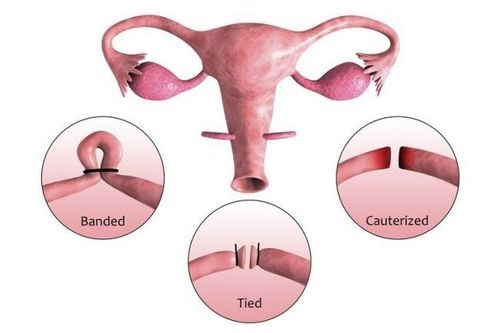This is an automatically translated article.
It is known that antiepileptic drugs with cytochrome P450 isoenzyme P450 (CYP450) in the liver reduce sex hormone levels in women taking oral contraceptives, thereby reducing the effectiveness of the drug and increasing the risk of unwanted pregnancy. Meanwhile, antiepileptic drugs without isoenzymes in the liver will not affect the effectiveness of oral contraceptives. So what is the interaction between oral contraceptives and antiepileptic drugs?1. Do antiepileptic drugs affect contraceptive effectiveness?
1.1. overview
Antiepileptic drugs are increasingly being used for problems such as: migraines, chronic pain syndromes and bipolar disorder. If antiepileptic drugs negatively affect the effectiveness of oral contraceptives, the possibility of this contraceptive failure will also increase as more and more women are taking antiepileptic drugs and oral contraceptives. .
However, no studies were found that measured, or even estimated, any increase in pregnancy rates in women taking antiepileptic drugs. Studies currently only examine blood hormone levels or bleeding patterns, not pregnancy rates.

Thuốc chống động kinh giúp điều trị các cơn đau nửa đầu
1.2. Enzyme-inducing antiepileptic drugs
Hepatic isoenzyme-inducible antiepileptic drugs (referred to as enzyme-inducible antiepileptics) accelerate the conversion of estrogen and progesterone to inactive metabolites, thereby reducing serum concentrations of the hormones contained in oral contraceptives. Some antiepileptic drugs may also increase sex hormone binding globulin levels, which may affect contraceptive effectiveness by reducing the availability of active ingredients. Phenobarbital is an enzyme-inducing antiepileptic drug that interacts with oral contraceptives, causing decreased sex hormone levels and sudden bleeding. Bleeding between cycles signals an estrogen deficiency, potentially a contraceptive failure. This is seen as evidence that the contraceptive pill is less effective. Phenytoin (Dilantin) also lowers serum hormone levels and causes sudden bleeding. Similar results were found for carbamazepine (Tegretol), felbamate (Felbatol), oxcarbazepine (Trileptal), and topiramate (Topamax).
1.3. Non-enzymatic antiepileptic drugs
Valproic acid (Depakote) has no oral contraceptive interactions. In one observational study, 4/6 women actually had increased sex hormone levels when taking valproic acid. Benzodiazepines, gabapentin (Neurontin), lamotrigine (Lamictal), levetiracetam (Keppra), tiagabine (Gabitril), and zonisamide (Zonegran) are also antiepileptic drugs that do not induce enzymes and do not appear to interact with oral contraceptives. Ethosuximide is also not an inducer of liver enzymes, but conclusive studies cannot be performed on oral contraceptive interactions with ethosuximide (Zarontin).

Thuốc chống động kinh không cảm ứng enzym không xảy ra tương tác với thuốc tránh thai
2. Recommendations from medical organizations
The American College of Obstetricians and Gynecologists (ACOG) states that, despite insufficient data, women taking enzyme-inducing antiepileptic drugs should use caution when using 30 - 35 mcg instead of 20 - 25 mcg of oral contraceptives containing estrogen. ACOG also recommends the use of condoms in combination with oral contraceptives or an IUD in women taking enzyme-inducing antiepileptic drugs.
In another statement, the American Academy of Neurology (AAN) recommends the use of oral contraceptive formulations containing at least 50 mcg of estrogen in women taking enzyme-inducing antiepileptic drugs. The organization also states that the effectiveness of oral contraceptives in women using enzyme-inducing antiepileptic drugs is still superior to that of diaphragmatic methods.
The World Health Organization recommends against the use of combined oral contraceptives and progestin-only pills in women taking enzyme-inducing antiepileptic drugs, unless the patient has no or cannot perform other methods. better contraception. However, injectable medroxyprogesterone (Depo-Provera) is still a recommended method.
According to the American Academy of Family Physicians (AAFP) medical facility, a large number of women take antiepileptic drugs to treat seizure disorders, migraines, and other mood disorders. and chronic pain. Because it has been suggested that some antiepileptic drugs can cause oral contraceptive failure, clinicians should exercise caution when advising patients about the possibility of an unintended pregnancy.
Despite the lack of data on pregnancy outcomes, the use of antiepileptic drugs in pregnant women is not without risk. Older antiepileptic drugs are thought to be teratogenic, but there are no reports of this problem in newer antiepileptic drugs. Therefore any woman of childbearing age prescribed antiepileptic drugs, even if not taking oral contraceptives, should be counseled about the risk of fetal malformations and should receive folate supplements to help prevent prevent neural tube defects.
Please dial HOTLINE for more information or register for an appointment HERE. Download MyVinmec app to make appointments faster and to manage your bookings easily.
Reference source: aafp.org













